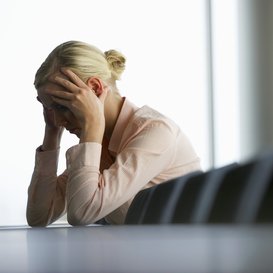Fertility
If you have been trying to conceive for 12 months or more, it is defined as infertility or sub-fertility. This can occur when you are trying for your first baby (primary infertility) or for a second child after having a successful pregnancy first time round (secondary infertility). The ability to conceive depends on many different factors, but it is essential that both partners are in optimum health to enable this to happen.
There are various things you can do to maximise your chances of conceiving naturally. At your initial consultation for fertility reflexology, we provide you with a pack full of information about how you can enhance your natural fertility, so please book an appointment with us to discuss any concerns you may have regarding your fertility. We also offer Male Fertility Assessments, and would encourage men to do this early on in your fertility journey to check the current status of your sperm health.
Statistics show that both men and women can be affected by infertility, although it is often the female partner who initiates further investigation and lifestyle changes. One in six couples in the UK seek medical help for fertility problems. Male fertility problems are involved in approximately 40% of cases, with female fertility issues also connected to about 40+% of cases. In 15-20% of cases, where there is no specific cause or obvious reason for infertility, it is termed as ‘unexplained infertility’. It is often at this stage that couples start looking at other lifestyle factors which might be affecting their fertility, such as:
There are various things you can do to maximise your chances of conceiving naturally. At your initial consultation for fertility reflexology, we provide you with a pack full of information about how you can enhance your natural fertility, so please book an appointment with us to discuss any concerns you may have regarding your fertility. We also offer Male Fertility Assessments, and would encourage men to do this early on in your fertility journey to check the current status of your sperm health.
Statistics show that both men and women can be affected by infertility, although it is often the female partner who initiates further investigation and lifestyle changes. One in six couples in the UK seek medical help for fertility problems. Male fertility problems are involved in approximately 40% of cases, with female fertility issues also connected to about 40+% of cases. In 15-20% of cases, where there is no specific cause or obvious reason for infertility, it is termed as ‘unexplained infertility’. It is often at this stage that couples start looking at other lifestyle factors which might be affecting their fertility, such as:
- Stress & anxiety – at work or at home
- Stimulant intake – alcohol, caffeine, nicotine, recreational drugs
- Nutrition – balanced diet or too many processed foods
- Weight & BMI (body mass index) – too overweight or too underweight
- Exercise – too much or not enough exercise
Stress & fertility

Stress plays a huge part in fertility problems. Sexual intercourse can become functional instead of spontaneous, and the longer it is taking to conceive, the more all-consuming it becomes.
This usually leads to one or both partners being in a permanent state of stress, which over a long period of time will lead to exhaustion and adrenal fatigue. Once at this stage, most of our body’s energy is spent on survival, maintenance and essential repairs and non-essential things, like reproduction, take a back seat until the body is back to a balanced state.
If the body is under too much stress, it produces too much adrenaline from the adrenal glands. Adrenal deficiency in turn leads to low thyroid function. Common symptoms of low thyroid function can include no ovulation and a short luteal phase, meaning that any fertilised egg is not sustained in its early phase for long enough.
Hormonal imbalances & fertility
Hormonal imbalances can also seriously hamper your chances of conceiving, and can contribute to the following conditions:
- PCOS (Poly cystic ovarian syndrome)
- Endometriosis
- Lack of periods (amenorrhoea) or irregular periods
- Painful periods (dysmenorrhoea) or heavy bleeding (menorrhagia)
- Recurrent miscarriage
- Luteal phase defect and/or progesterone deficiency
© COPYRIGHT 2024 Fertility and Pregnancy Limited




